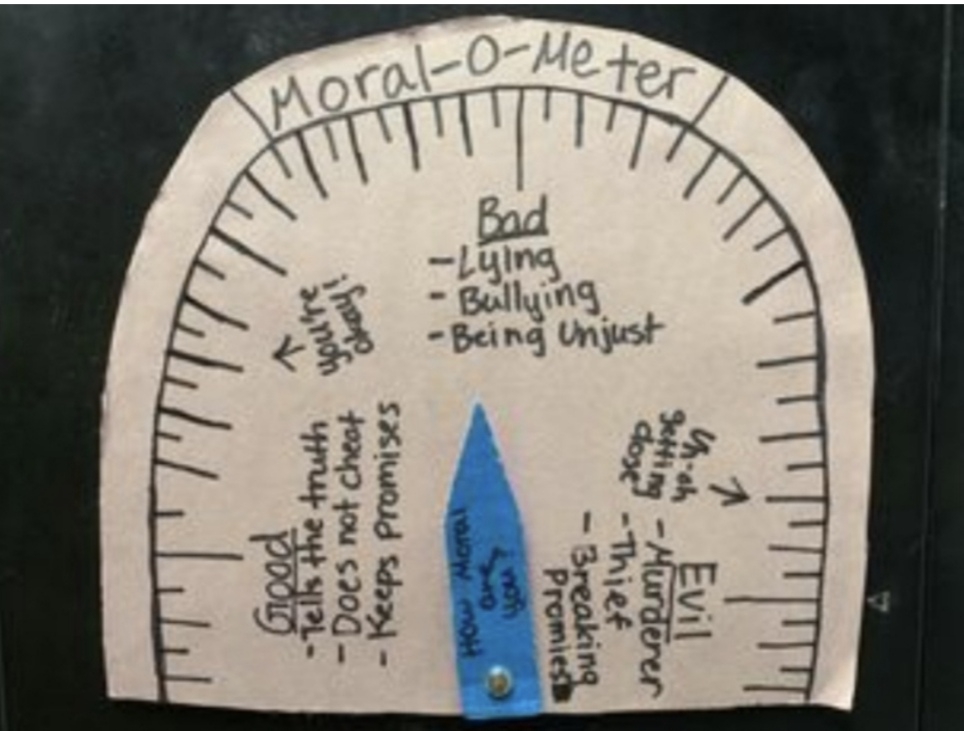We’re all excellent lawyers when defending our own mistakes—and ruthless, unforgiving judges when condemning others’.
Recently, I found myself in a discussion where a senior gentleman had remarried—to a woman 15 years younger, who was also previously married. The tea room quickly turned into a courtroom, with some treating it as lighthearted banter while others delivered harsh verdicts, as if the couple had committed some unspeakable crime against humanity.
That’s when the idea of a Moralometer hit me. Imagine if we had a device to measure just how selectively people apply their moral outrage. One minute, they’re joking about it; the next, they’re acting like divine arbiters of righteousness, ready to burn someone at the stake—conveniently forgetting their own skeletons.
Wouldn’t it be fun to scan the critics first? Just to see where their needle lands before they pass judgment?
Oh, look at them! Having an affair? Disgraceful!
But me? Oh, I had my reasons.
Context matters, You See.
We all walk around with a built-in moralometer, an internal moral compass we keep meticulously calibrated—to judge everyone except ourselves. And, of course, this gadget works overtime on public figures: politicians, government servants, newsmakers, colleagues, neighbors… basically anyone who isn’t us.
Now, imagine if a real moralometer actually existed—a pocket-sized device that could scan someone and instantly spit out a precise reading of their moral purity. Point it at a criminal? Deep red, seething with evil. Point it at your best friend? Lush green, practically a saint.
Wouldn’t that be useful? A quick pre-marriage scan—before the vows, before the drama. Actually, why wait? Just bring it to the first date and save yourself some trouble. Hiring a new employee? Scan. Choosing a business partner? Scan.
But here’s the hilarious paradox: despite no such machine existing, we all act as if we have one.
We leave a lovely social evening, and what’s the first thing we do? Judge the host. The decor, the wine, the snacks, the company—everything is subject to our forensic analysis. We always just “know” who are the saints, who are the devils, and where everyone else falls in between—except, of course, for ourselves.
Which brings me to an unsettling thought:
Maybe judging moral character is nobody’s business.
Or… maybe it is? If morality is about how we treat others, then perhaps it’s very much everyone’s business. If morality is about how we might behave in hypothetical situations, well—doesn’t that also matter? Wouldn’t a future spouse, a boss, a judge, or even a casual acquaintance want to know if someone has the general tendency to cheat, lie, exploit, and backstab?
Ah, but here’s the catch. In the real world, moral character is often completely irrelevant to success.
Or worse—sometimes inversely correlated. Some of the most successful business leaders, politicians, actors, and artists have a moral compass that doesn’t just wobble—it’s broken, tossed into a ditch, and set on fire.
In system which we live, having a shaky moral compass isn’t a problem—it’s a badge of honor.
The smarter you play the game, the better your chances, while the honest and idealistic ones just look cute but clueless. Morality? That’s just an old-fashioned idea, like actually reading the terms and conditions before clicking “Agree.”
So what does all this mean? Maybe your judgments of others say more about you than about them.
Consider this---
If someone constantly complains toyoulu about others, what do you think they do when you’re not around? The odds are—you’re next.
So, the next time someone judges you?
Yawn.
When they misunderstand you?
Smile.
When they underestimate you?
Laugh.
When they condemn you?
Ignore.
When they envy you?
Celebrate.
When they oppose you?
Win.
And if all else fails, remember: The moralometer doesn’t exist, but hypocrisy?
Oh, that one comes factory-installed in every one of US











Beautiful piece of writing. Nothing less is expected from my dear Osho.
ReplyDeleteHumare aap editor there academy mein
ReplyDeleteWe all expert judges but have the curiosity of a cat that just discovered a cardboard box? High time we trade our moralometres for a sense of wonder!
ReplyDeleteExcellent one pragmatic
ReplyDeleteExcellent one pragmatic
ReplyDeleteBeautifully articulated piece. So true.
ReplyDeleteExcellent and so true
ReplyDeletenicely articulated!! It is very difficult to bridge the gap between " Kathni" and "Karni... ".... almost impossible. It happens to all of us some time or other despite all attempts at objectivity!! So I advise my students to try and shorten the gap between what we Preach and what we do as much as practically and humanly possible.
ReplyDeleteGreat article sir. Thought provoking...
ReplyDeleteWhat a topic and elucidation!
ReplyDeleteVery nice article indeed sir.... Morality in our actions can give beauty to our lives...
ReplyDeleteIn our vast cosmos morality is a cage to keep us chained, not to divert the intended course we are journeying. As long as transparency, simplicity and most of all Love is the medium we survive then I guess morality doesn’t matter or for that matter should never come into play.
ReplyDeleteVery nice sir 👌 👌👌
ReplyDeleteMorality is nothing but the way we perceive things as per social obligation or environment.... Certain deeds may not be at par with social commitment in India because of prejudice... Whereas same is ok in Western countries... Even well educated persons can't separate themselves from such shackles... Very true, we need to stop becoming judgemental and open our horizon and be empathetic enough to see other side of wall.... Well narrated blog with deep message...
ReplyDeleteBeautiful piece of art
ReplyDelete